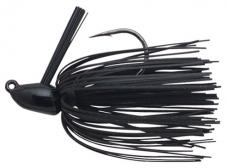Learning a new technique...
Although bass fishing originated in America it is practiced in many countries like Japan, Namibia, Spain, Italy, Australia, and Mexico. No matter where you live it is important to remember bass are bass and that it is the habitat differences from place to place that anglers have to adapt to and use a number of varying techniques to catch them.
One lake differs from another, impoundments and reservoirs can be deep or shallow, and may have an abundance of vegetation, timber, rock, or man-made structure. All of these factors may influence the way an angler has to fish in order to catch a bass and if he is not proficient in a variety of different techniques, he may find himself going fishless on more than one occasion.
A fisherman is an adaptable creature and will use his imagination to present a lure in an interesting or different way to get bass to bite, and this is usually how a new technique evolves.
Other anglers see his success and start copying his ‘style’ so that they too can be successful like him. The successful angler is one who is skilled in a number of different techniques, has confidence in each, but is not afraid to learn something new, even though he knows he can catch fish using something old.
For an average bass angler to develop into an excellent bass angler, I believe that angler should resolve to learn and gain skill and confidence in at least one new technique each season.
Learning a new technique is as simple as 1-2-3.
Research – once you have decided on the technique, you need to put in some time doing a bit of research before you hit the water. The internet is the quickest and easiest way to do this. You can use articles in books and magazines too, there is nothing wrong with this, but it takes longer to find something relevant. Read up as much as you can, make notes, and study photos/video - YouTube is a goldfield of valuable instruction.
There are plenty of experienced, highly successful anglers around who are already veterans at what you are still trying to learn. Do not be afraid to pick their brains for some advice. Most of them would be happy to share some of their knowledge and experience with you.
Make sure you have the right equipment – this is one very important aspect of your research. You need to determine exactly what equipment is required for this technique, and make sure you have it before attempting to learn the technique. Proper tools make the job much easier; a hairdresser will not use sheep shears to cut their client’s hair unless chaos is the desired effect.
Make sure you have the right rod, reel, line, and bait for the job. Certain anglers specialise in certain techniques, for example, Dean Rojas – frog fishing, Denny Brauer – pitching/flipping, Aaron Maartens – dropshot, etc. Try to find out which anglers excel at the technique you want to learn, and pay attention to the tools they use. Google is a wonderful research tool!
Practice makes perfect – when you have done the homework it is time to hit the water. The best way to learn something new is to do it. Go out there and fish; remember everything you have read about it and apply! Designate a specific trip to learn, and select a dam with lots of fish. When you catch your first fish on the new technique you will already have gained a bit of confidence. When you have caught your twentieth fish you will know exactly what the bite feels like, where to cast the lure, how to set the hook and you will have enough confidence to use it during your next fishing adventure, be it social or competition.
















0 Comments